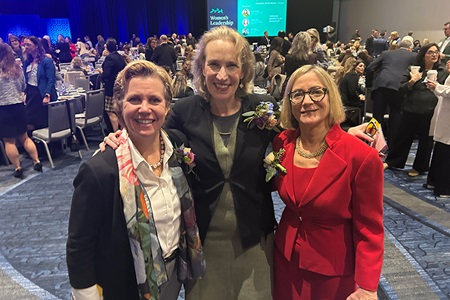Frank Lahey: Surgeon, Teacher, Medical Pioneer
Moving Medicine Forward
Frank Howard Lahey, MD, was born in the 19th century, but his legacy extends into the 21st. During his lifetime he was a national figure—founder of the Lahey Clinic, teacher of medicine and world-renowned surgeon. Today, surgeons still use techniques Dr. Lahey pioneered. And the team approach to care that he developed at Lahey Clinic has proved successful in every area of medicine.
Early Medical Positions
Dr. Lahey was born on June 1, 1880, in Haverhill, Massachusetts. He attended high school there and worked at his father’s bridge-contracting firm. After receiving his medical degree from Harvard Medical School in 1904, he served as an intern and house surgeon at Long Island Hospital.
In 1905, Dr. Lahey began working at Boston City Hospital as a surgeon. He went on to become a resident surgeon at Boston City Hospital’s Haymarket Relief Station in 1908. He was also on the surgical faculty of Harvard Medical School, serving there from 1908 to 1909 and from 1912 to 1915. Dr. Lahey was a professor of surgery at Tufts University Medical School from 1913 to 1917.
During World War I, Dr. Lahey served as a major in the Army Medical Corp. He was director of surgery at Evacuation Hospital No. 30. Along with his medical education and surgical positions, this wartime experience convinced Dr. Lahey of the value of teamwork in medicine.
A Recognized Leader
When Dr. Lahey returned from World War I, he opened a small private practice in Boston. In 1923, that practice became the first Lahey Clinic. Dr. Lahey was also acting as chair of surgery at both Tufts and Harvard Medical Schools, but he left those positions to devote his time fully to the clinic.
Dr. Lahey’s vision for his clinic was unique: Every component of a patient’s health care would be coordinated under one roof. Today, Lahey Hospital & Medical Center maintains this vision, with specialized medical teams combining their expertise to care for individual patients.
The Lahey Clinic was so successful, and Dr. Lahey’s surgical and teaching skills were so effective, he was appointed to a number of influential leadership positions. He was president of the American Medical Association, the New England Surgical Society, the American College of Surgeons and the International Society of Surgeons.
During World War II, President Franklin D. Roosevelt appointed Dr. Lahey to a special commission to report on medical standards. And in 1946, he was awarded the Henry Jacob Bigelow Medal of the Boston Surgical Society.
Trustworthy Care
Dr. Lahey’s reputation brought a number of prominent people to him for care. He treated Anthony Eden, who was the British Foreign Secretary and Anastasio Somoza Garcia, president of Nicaragua. In March of 1944, Dr. Lahey was called to Washington, D.C., to see President Franklin D. Roosevelt.
Roosevelt was preparing to run for another term as president, and he wanted to calm fears that he might be ill. Dr. Lahey examined the president and determined that he likely had heart failure and wouldn’t live to the end of another term. However, Roosevelt’s surgeon general reported to the nation that the president was in excellent condition for his age.
Information between a doctor and patient is private, and Dr. Lahey reluctantly agreed to keep his findings confidential. But he wrote a memo that explained what he found and why he had kept silent. The memo was held in secret until it was released in 2011.
Dr. Lahey’s conclusion proved correct—Roosevelt died only three months into his fourth term.
A Lasting Legacy
Dr. Lahey helped advance surgery and medical care in the United States, with Lahey Clinic and through his teaching. Lessons he learned in World War I about antisepsis and anesthesia gave him the tools to create new surgical processes—his surgical teams worked together for the best results in complicated surgeries. Dr. Lahey is credited with techniques that reduced the high mortality rate among people who had thyroid surgery, and he pioneered safer surgeries for the stomach and colon.
Regardless of his achievements, Dr. Lahey always gave credit to his entire surgical team, and he is considered one of America’s greatest teachers of surgery. When he died on June 27, 1953, a memorial speech was delivered in the U.S. House of Representatives. It concludes, “The medical profession has lost one of its greatest members. Massachusetts has lost a citizen who accepted with enthusiasm the broader responsibilities of his profession. The world has lost a man who was unequaled in his services to mankind.”



